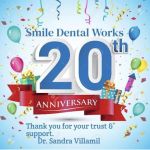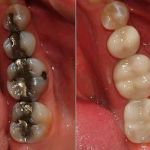Should You Use a Manual or Electric Toothbrush for Optimal Cleaning?
Oral hygiene is an essential component of overall health, and selecting the right toothbrush plays a crucial role in this daily ritual. With the vast array of options available, many are left pondering whether to choose a manual or electric toothbrush. While both types aim to maintain healthy teeth and gums, they offer distinct advantages and limitations. Understanding these features can guide you toward a better choice for your specific dental needs, ultimately contributing to optimal oral health. In this article, we will delve into the benefits and drawbacks of manual versus electric toothbrushes, providing insights to help you make an informed decision. Let's explore the key factors that may influence your choice and improve your dental cleaning routine.
The Appeal of Manual Toothbrushes
Manual toothbrushes have been a staple in dental care for decades, cherished for their simplicity and affordability. These toothbrushes offer a straightforward approach to oral hygiene, allowing users to control the pressure and duration of their brushing. A significant benefit of manual toothbrushes is their cost-effectiveness; they are often available at lower prices compared to their electric counterparts, making them accessible to a wider audience. Additionally, manual toothbrushes do not require batteries or charging, which can be a convenience in travel scenarios or for those mitigating electronic use. Their availability in various bristle types and head sizes ensures that individuals can find a brush tailored to their specific comfort and dental conditions.
However, the effectiveness of manual toothbrushes largely depends on the user's brushing technique. Proper brushing for two minutes, twice a day, is ideal, but not always practiced. In some studies, including one published in the *American Journal of Dentistry*, manual brushing can lead to inconsistencies in cleaning, missing areas, or applying insufficient pressure. Those who excel with manual brushing often have excellent dexterity, making it a practical choice for them. Overall, for individuals comfortable with maintaining consistent oral care practices, manual toothbrushes provide a reliable and cost-effective solution.
Advantages of Electric Toothbrushes
Electric toothbrushes, on the other hand, offer advanced features that appeal to many users, particularly those seeking ease and enhanced effectiveness. One of the main strengths of electric toothbrushes is their superior plaque removal capability. Clinical studies, such as those conducted by the Cochrane Library, indicate that electric toothbrushes can reduce plaque up to 21% more efficiently after three months of use compared to manual brushes. This performance is primarily due to their oscillating or vibrating bristle movements, which require minimal effort from the user and ensure a consistent speed and intensity.
Moreover, electric toothbrushes often come equipped with timers and sensors that guide users to brush for the recommended duration and apply proper pressure, reducing the risk of gum damage. While electric toothbrushes typically come with a higher initial cost and may necessitate ongoing expenses for replacement heads and energy consumption, many users find the benefits—inclusive of improved reach and thorough cleaning of harder-to-access areas—worth the investment. For individuals with limited mobility or those looking to enhance their oral care regimen, electric toothbrushes offer a compelling advantage.
Personalization and User Preferences
Ultimately, the choice between a manual and electric toothbrush often boils down to personal preference and individual dental needs. For example, children or those with orthodontic appliances might benefit significantly from the additional cleaning support that electric toothbrushes provide, as suggested by guidelines from the American Dental Association (ADA). Conversely, individuals preferring a hands-on approach or those sensitive to vibrating gadgets might gravitate towards manual brushes, particularly if they have honed effective brushing techniques.
Many dental professionals recommend trying both types before settling on one, taking into account one's comfort, brushing habits, and budget. It's also important to consult with your dentist who can provide personalized recommendations based on your dental history and goals. This choice plays a pivotal role in maintaining oral health, reflected in the health of your teeth and gums over time.
Conclusion: Making the Right Choice for Your Oral Health
Deciding between a manual and an electric toothbrush involves weighing the benefits and limitations of each, aligning them with your personal preferences and oral health objectives. While manual toothbrushes offer simplicity and cost savings, electric toothbrushes present advanced cleaning capabilities and user-friendly features. Regardless of your choice, regular replacement of toothbrushes or heads every 3-4 months, alongside consistent brushing and flossing, remains imperative for effective oral hygiene.
Whether you lean towards a manual or electric toothbrush, the key is to ensure that it supports your oral care routine effectively. As highlighted in this article, both options can promote dental health, provided they align with your lifestyle and personal needs. For more detailed guidance on oral hygiene and selecting the best dental care products, visit our website Dentistry Toothtruth.







 Dr. Sandra Villamil, DDS4.0 (21 review)
Dr. Sandra Villamil, DDS4.0 (21 review) Doc Bresler's Cavity Busters4.0 (363 review)
Doc Bresler's Cavity Busters4.0 (363 review) ProSmile Dentistry: Parisa Zarbafian DDS5.0 (29 review)
ProSmile Dentistry: Parisa Zarbafian DDS5.0 (29 review) Stratford Dental Center4.0 (43 review)
Stratford Dental Center4.0 (43 review) Dr. John M. Clifford, DDS0.0 (0 review)
Dr. John M. Clifford, DDS0.0 (0 review) Shawn McCarthy, DDS, MS0.0 (0 review)
Shawn McCarthy, DDS, MS0.0 (0 review) The Importance of Oral Health Education During Pregnancy for a Healthy Pregnancy
The Importance of Oral Health Education During Pregnancy for a Healthy Pregnancy Best Tips for Brushing Your Teeth Properly for Healthy Gums: Essential Techniques for Oral Health
Best Tips for Brushing Your Teeth Properly for Healthy Gums: Essential Techniques for Oral Health Why Skipping Dental Checkups Can Lead to Bigger Oral Health Problems
Why Skipping Dental Checkups Can Lead to Bigger Oral Health Problems Advantages of Porcelain Dental Restorations
Advantages of Porcelain Dental Restorations How Can Diabetes Cause Tooth and Gum Problems? Preventing and Managing Oral Health Issues
How Can Diabetes Cause Tooth and Gum Problems? Preventing and Managing Oral Health Issues Healthy Habits for Promoting Good Oral Health and Hygiene: Tips for a Healthy Smile
Healthy Habits for Promoting Good Oral Health and Hygiene: Tips for a Healthy Smile